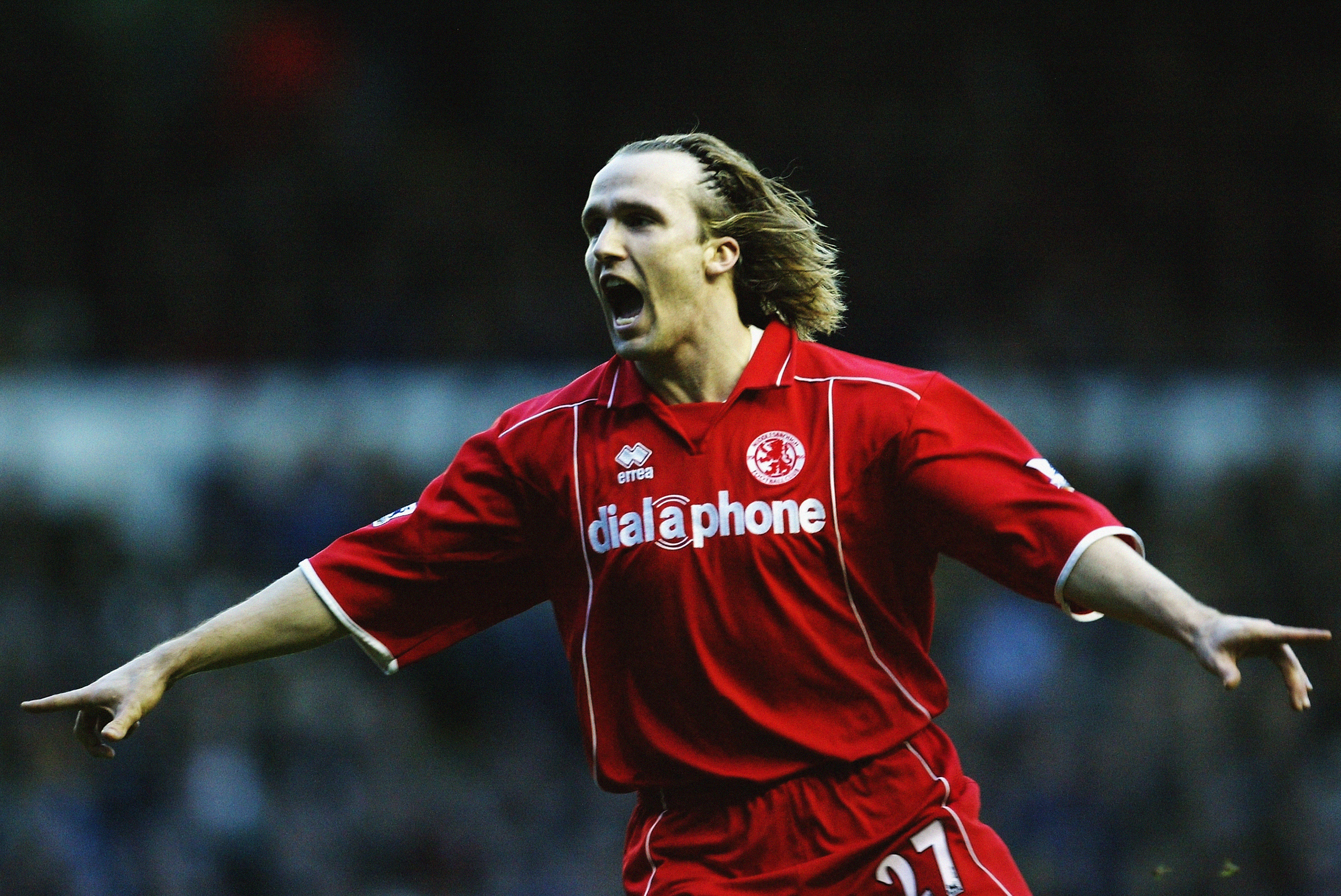Ronaldo at Inter Milan: The UEFA Cup, the goals and the injuries – the full story of his time in Italy
Ronaldo was the best player on the planet and signed for a world-record fee... but Inter Milan still didn't win the Scudetto. What happened?
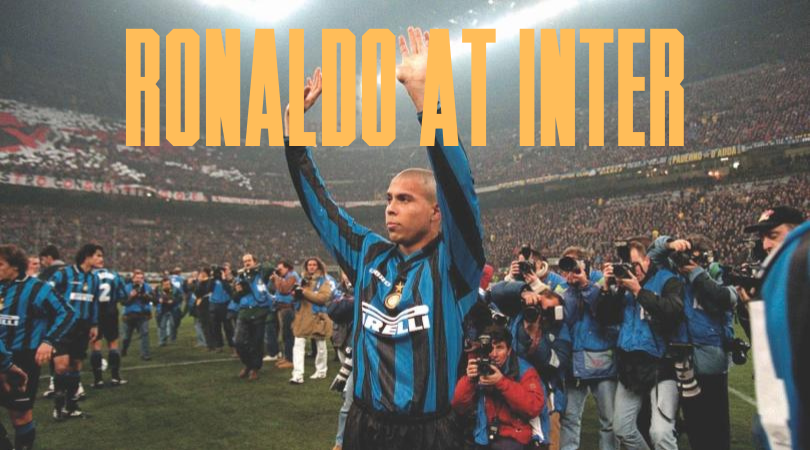
The best features, fun and footballing quizzes, straight to your inbox every week.
You are now subscribed
Your newsletter sign-up was successful
Want to add more newsletters?
Join the club
Get full access to premium articles, exclusive features and a growing list of member rewards.
This article first appeared in the October 2019 issue of FourFourTwo magazine. Pick up a subscription and get your first five issues for just £5!
It was early in the summer of 1997 and Barcelona president Jose Luis Nunez had a problem.
Just under a year ago he’d sent his right-hand man and future successor, Joan Gaspart, to the Brazil team hotel in Miami, disguised as a waiter, to persuade teenage striker Ronaldo to join Barça from PSV Eindhoven. Now, after one remarkable campaign at the Camp Nou, scoring 47 goals in 49 games, it was looking increasingly likely that his radiant, unstoppable star was going to walk out on him, just as another presidential election was looming at the Catalan club.
Nunez had been slow to follow up on his promise of improved terms on Ronaldo’s initial five-year contract, made just a couple of months after the marksman’s La Liga debut, which angered the Brazilian and his mini entourage of agents. It was May, nearing the end of the season, and still no offer was forthcoming.
When Nunez made a show of waving a new 10-year contract around and called a press conference to announce that “Ronaldo is now Barcelona’s forever,” club and player had a serious falling out. “Everything Nunez has said is a lie and we no longer need to negotiate with them,” the forward said. “He has been cheating us for seven months.”
Everyone who saw Il Fenomeno (The Phenomenon) was entranced, all the time. Massimo Moratti, Nunez’s counterpart at Inter and never a man shy of throwing his considerable cash around, had been courting the goal-getter since watching him hit a hat-trick for Barça against Atletico Madrid on television. Ronaldo agreed to sign for the Italian side while away on international duty at the Copa America, paving the way for Moratti to trigger the required £17 million buy-out clause in his contract. The full fee would rise to £25m, the second time in Ronaldo’s still-young career that he had broken the world record.
FOURFOURTWO PODCAST: Il Fenomeno – the full story of Ronaldo at Inter Milan
The best features, fun and footballing quizzes, straight to your inbox every week.
Inter had endured another season of discontent and underachievement, finishing 3rd in the Serie A table with the unpopular Roy Hodgson – dubbed ‘Mr Bean’ by the disdainful fanbase – leaving the San Siro towards the campaign’s end and replaced by Luigi ‘Gigi’ Simoni. Midfielder Paul Ince also departed the club during the summer, rumoured to be upset about new boy Youri Djorkaeff stealing his thunder. The former Manchester United man was certainly growing impatient with the team’s lack of success, and outgoing countryman Hodgson’s complaint that both president and club were obsessed with the past came with a degree of justification.
Moratti’s dad Angelo had overseen the all-conquering Grande Inter of the 1960s, coached by the enigmatic and eccentric Helenio Herrera. Desperate to replicate those glory days, Moratti junior had pumped millions of the family’s oil fortune into the squad since becoming president in 1995, but with little return so far.
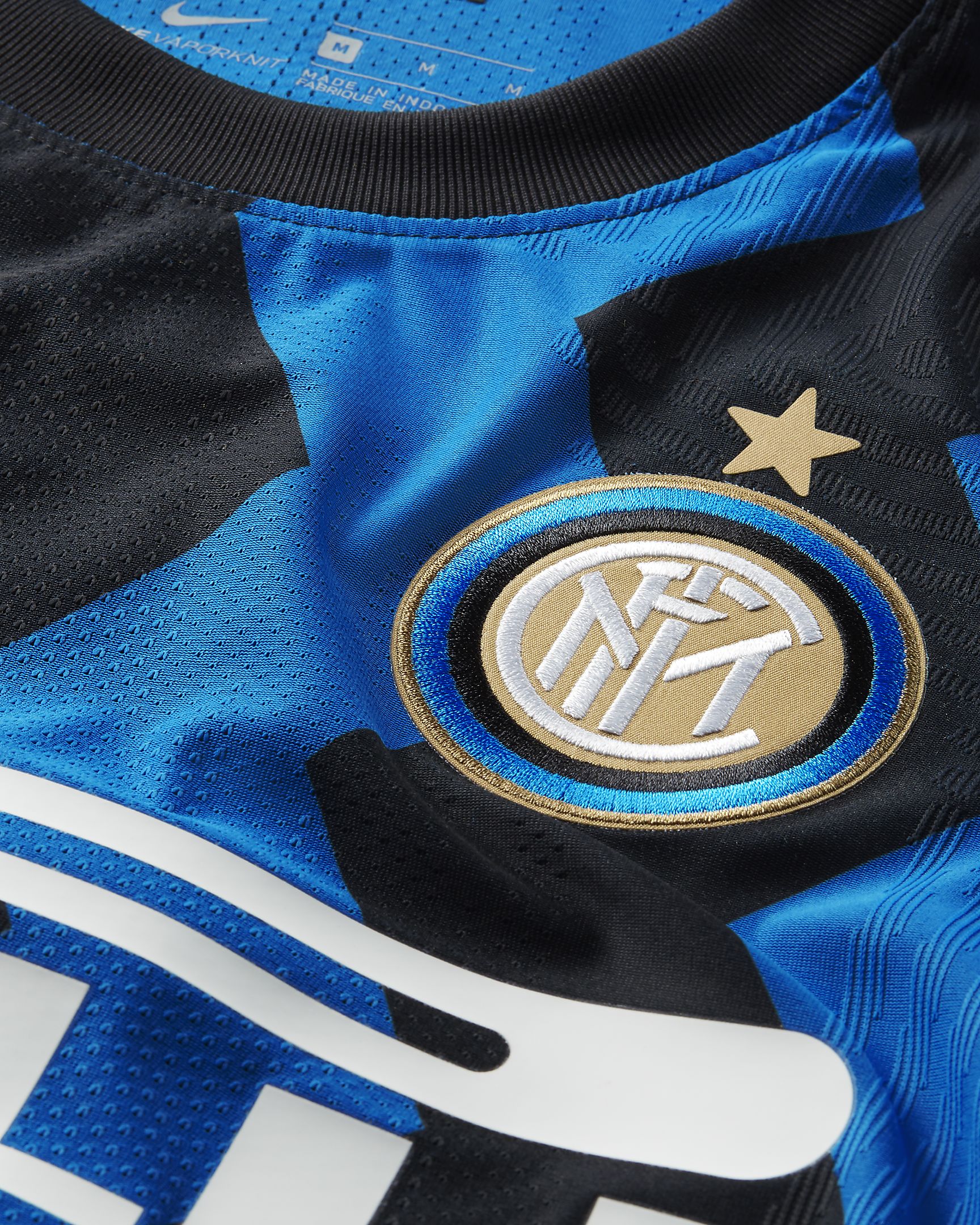
2020/21 SHIRTS The best new kits from around Europe
Inter had pretty much blindsided everyone by signing Ronaldo, with Lazio expected to land the striker ahead of interest from other sides including Paris Saint-Germain and, apparently, Rangers. Reports in the Italian press claimed the Glaswegians had offered a deal that meant the Brazilian would only have to play in midweek Champions League games, thus sparing him the challenge of a trip to Kilmarnock on a Tuesday night in February.
Four-thousand supporters turned up to watch the newly-arrived Ronaldo being put through his paces at Inter’s Appiano Gentile training base, waiting for the best part of four hours in the blazing midsummer heat. He looked tired and heavy in his first Inter game a couple of weeks later, playing 17 minutes in the pre-season Pirelli Cup against Manchester United in front of a San Siro crowd of just under 60,000.
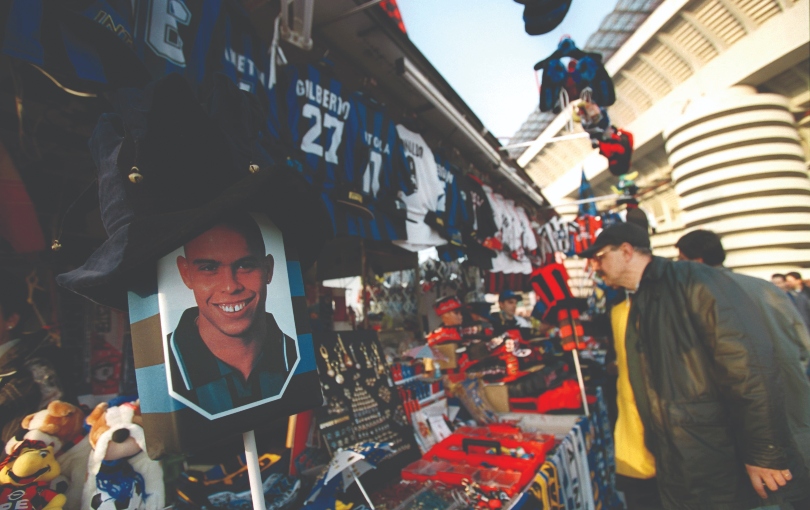
The game was drawn 1-1, with Inter prevailing 4-1 on penalties. The striker wasn’t seen again for weeks, hidden away in a gym while his team-mates struggled to gel during an uninspiring pre-season programme.
Simoni found himself under pressure before even taking charge of a league game. He asked, not unreasonably, to be given more time. “There is no time,” Moratti told reporters.
In that opening league match of the season on August 31, Inter’s new star was overshadowed by another South American making his Nerazzurri debut. Uruguayan playmaker Alvaro Recoba came off the substitutes’ bench and scored two spectacular goals in Inter’s 2-1 win against Brescia; the first from 30 yards, the second five minutes later with a beautifully placed free-kick from even further out.
Ronaldo’s maiden Serie A goal arrived in the following game away at Bologna, one of four for the visitors. The Brazilian appeared to be working well with Djorkaeff, and the Frenchman was clearly enjoying having more responsibility in the middle of the park.
“We had an almost perfect understanding,” the future Bolton and Blackburn midfielder told journalists. “We have this intuition and can anticipate the other’s movements. This comes from having the same spirit of playing the game that we both had when we were kids.”
Both linked nicely with Recoba, exciting supporters and media alike. An unbeaten run of 12 league games included wins at Napoli and at home to Roma, plus a draw in the Milan derby with Ronaldo scoring from the penalty spot.
Inter led the league table by the end of September and maintained top spot before the winter break, despite some shaky performances. Somewhat inevitably, Ronaldo was called away on international duty for a large chunk of December, competing at the FIFA Confederations Cup in Saudi Arabia and scoring a hat-trick in Brazil’s 6-0 demolition of Australia in the final.
Beating Juventus at the San Siro in his first game back was a huge statement of intent, but still there were claims of Ronaldo looking weary and out of shape, and of the player not living up to the expectations. His overloaded schedule surely wasn’t helping – in 1997 he played more than 70 games, on various continents.
The Brazilian press had criticised his displays during the inconsequential Confederations Cup and now the Italian media were doing the same, throwing gossipy stories about a possible split with long-term partner Susana Werner into the mix.
Basta! It was one of the first Italian words Ronaldo had learnt on his arrival in the country. Enough! It was always more of a plea than a command: to the press, fans and sponsors. Never comfortable in the spotlight, the forward was one of the first players to become a global brand, as much a star in the Middle East as he was in Milan.
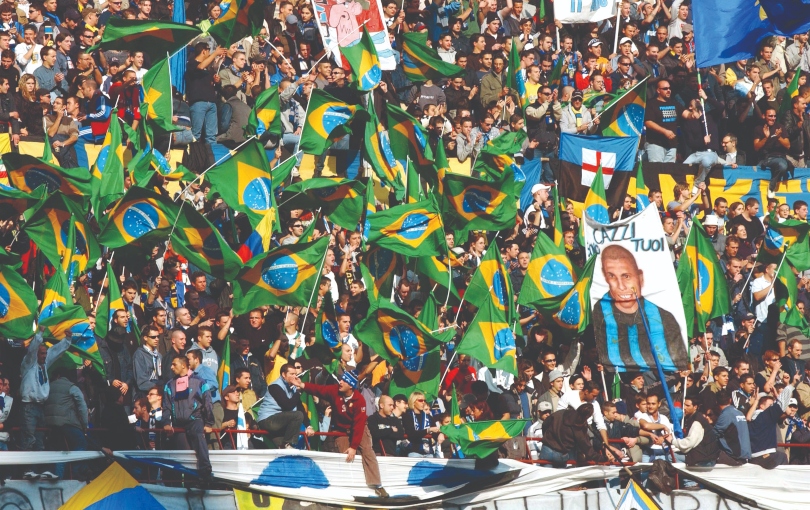
Supporters, especially in Italy, had got used to the idea of a single player transforming a team into champions; it wasn’t that long ago that Diego Maradona (another player flogged by Nunez at Barça) had done just that with Napoli.
In 1996, Nike signed a then-huge £100m contract with the Brazilian Football Federation that reportedly gave the American company the right to arrange five friendlies anywhere around the world, above and beyond the federation’s obligations to the international football calendar. And the Italian media, here in the birthplace of the paparazzi, was a breed apart from anything Ronaldo had experienced elsewhere.
It didn’t help that when the 20-year-old was good, he really was very good indeed, raising everyone’s game and punching his way through Serie A’s catenaccio-bolted defences with pace, strength and guile. “Ronaldo is the greatest I ever played with – Ronaldo Luiz Nazario de Lima,” co-striker Ivan Zamorano tells FourFourTwo.
“The only thing was that he didn’t head so well, but for the rest he was a complete player, one that was a joy to watch. He was extraordinary. The speed, the technique. He could go at 100km/hr, slow down and speed off again.”
Ronaldo was on fire heading into springtime, with the Nerazzurri now looking comfortable at the top of the table. His two goals in a 2-1 win at Roma in April were magnificent showcases for his astonishing acceleration and perfectly balanced menace. A shell-shocked Vincent Candela, playing at left-back for the Giallorossi, was asked if there was any way to stop the striker. “Call the carabinieri,” he replied.
Juventus did find a way – winning the Scudetto in 1997-98, part of a run of six titles in 10 seasons. The last two would involve many a call to the carabinieri, as the Calciopoli corruption investigations meant they were stripped of the crowns in 2005 and 2006.
Back in 1998, the Bianconeri had hit a remarkable run of form from the turn of the year, beaten just once in the 16 league matches after losing 1-0 to Inter in Milan. When Inter travelled to Turin later in April, match official Piero Ceccarini refused to award a penalty after Juve defender Mark Iuliano blocked Ronaldo in the box, first with his body, then with his hands. Juventus duly won the game 1-0.
“The league can punish me, but I can’t stay quiet today,” Ronaldo said afterwards. “The whole world can see that the officials were in favour of Juve. I can’t go on like this. Football is joy when you play 11 against 11, but it becomes sadness if you play 11 against 12.”
Juve general manager Luciano Moggi complained that, “Ronaldo’s a good lad on the pitch, but less so when he says this sort of stuff. He really shouldn’t go stirring things up.”
Amid angry debates in the Italian parliament, the campaign carried on, although Inter now looked deflated. There was, however, still an all-Italian UEFA Cup final to look forward to in Paris.
A REMINDER:#OnThisDay 1998
Inter beat Lazio 3-0 in the UEFA Cup Final. Zamorano, Zanetti and Ronaldo the scorers
Nesta on the final; "The worst experience I ever had was playing against Ronaldo in the 1998 UEFA Cup"pic.twitter.com/MmSPciYIY7— Football Remind (@FootballRemind) May 6, 2019
One of his finest performances for the club, there was a clear edge to Ronaldo’s play that night at the Parc des Princes, a tenacity, energy and grace matched by his team-mates. Sven-Goran Eriksson’s Lazio were totally caught out, with Djorkaeff frequently coming in from the right wing, changing position and linking up with the front pairing of Ronaldo and Zamarano, while Javier Zanetti kept Pavel Nedved quiet.
Inter triumphed 3-0, with Ronaldo sealing victory by running at the goalkeeper, doing a little stepover and then rounding him to score.
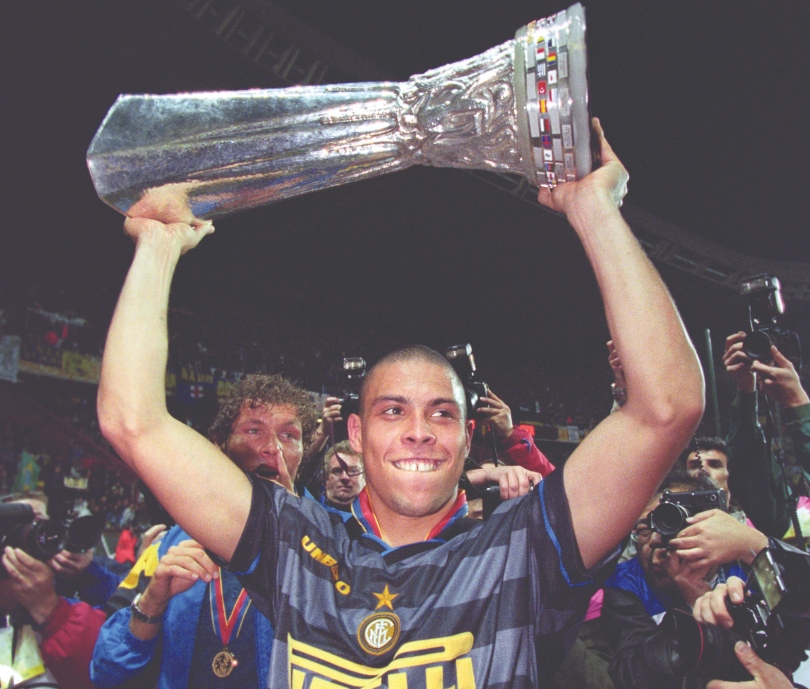
The Brazilian talisman didn’t know it at the time, no one did, but that 1997-98 season, one in which he netted 25 goals in 32 league games and confirm his position as the world’s best, was the closest he’d get to winning Serie A. But the pressure, and demands, never went away.
They were there most famously in the 1998 World Cup Final against hosts France, after Ronaldo suffered convulsions the night before the Selecao’s 3-0 defeat in Saint-Denis, and they were there waiting for him outside every bar and restaurant.
Ronaldo missed the opening match of 1998-99 – serving a ban for his comments about match officials favouring Juve – but Moratti’s recruitment of Roberto Baggio had sparked record season ticket sales. Now in his early 30s, the ‘Divine Ponytail’ had been in sparkling form for Bologna, and when his strike partner returned to net the only goal in Inter’s second game of the season at home to Piacenza, the scene seemed set for another serious Scudetto challenge.
A young Andrea Pirlo, plus Diego Simeone, Gianluca Pagliuca, Djorkaeff, Zanetti and Zamorano: this was a team spoilt for talent, but it struggled to really get off the ground. It didn’t help that Ronaldo was sidelined twice before Christmas, both times with a knee problem.
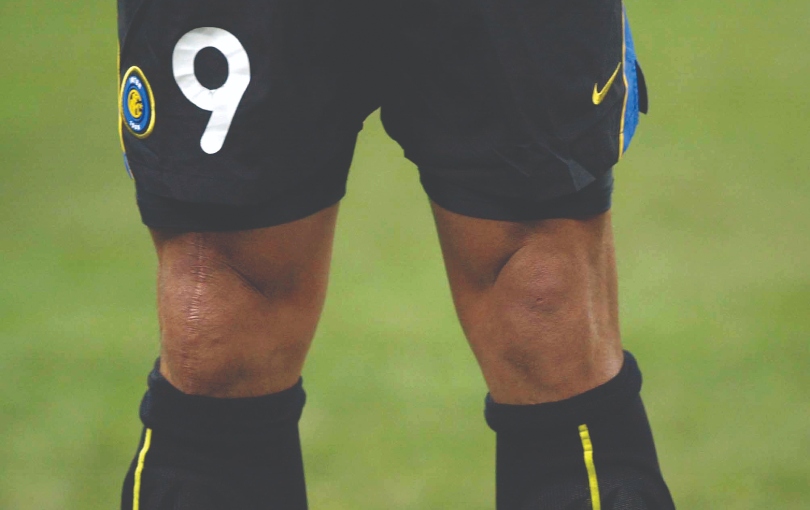
In January, just when the Nerazzurri were starting to find some consistency, the striker was again injured, again with a knee tendon complication, and didn’t return until April 3. Simoni had been sacked in November and replaced by the Romanian Mircea Lucescu, who never won over a squabbling dressing room and would later claim the Brazilian was given an easy ride by Moratti and allowed to skip crucial training sessions.
Goalkeeping coach Luciano Castellini took over in March 1999, with Marcello Lippi lined up for the next campaign. Those final few months were a complete disaster as an angry fanbase frequently singled out Ronaldo for abuse, frustrated that their headline-hogging Samba star was looking like a one-season wonder, another in a growing line of the club’s could-haves, should-haves.
Il Fenomeno was slowly becoming il Problema. Castellini was eventually replaced for the remaining four games by the returning Hodgson in a nightwatchman role (won two, lost two). Inter finished 8th in the table, 24 points behind champions and neighbours Milan.
Moratti responded in typical fashion, smashing the record transfer fee to sign Christian Vieri for £32m from Lazio. The striker had played under Lippi before at Juventus, and again, despite the dramas of the previous season, optimism was in the air.
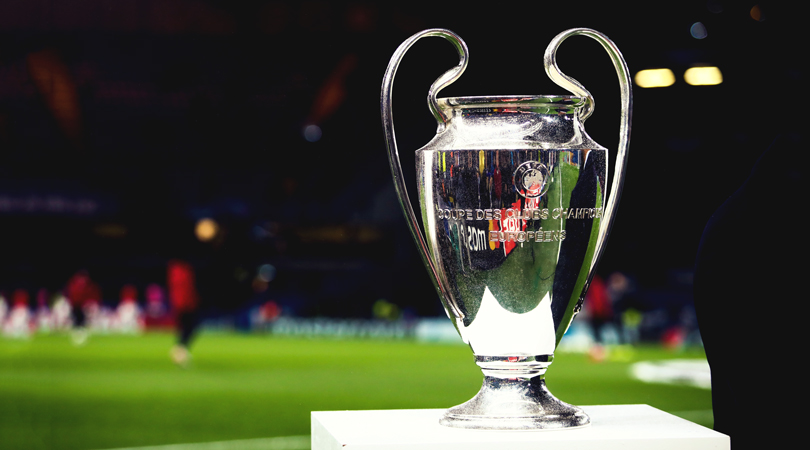
RANKED Who's the greatest? Every Champions League-winning side, judged
It didn’t last. Lippi wasn’t going to be rushed into bringing Ronaldo back after the South American returned from a long summer break looking a tad out of shape. Baggio too was now off the radar, out of favour and out of sorts. In October, Ronaldo was sent off during a 2-1 derby defeat to Milan, lashing out after his Argentine marker Roberto Ayala apparently told him he was going to break his teeth.
Things got much worse the following month. At home to Lecce, with Inter on course for a resounding 6-0 win, Ronaldo stepped up to take a 50th-minute penalty, sent the keeper the wrong way with one of his deft feints and darted off to celebrate.
He’d felt something give in his right knee as the ball crossed the line, his studs getting a little caught in the San Siro’s notorious mud, but played on for another 10 minutes before pulling up and signalling to the bench.
He limped off, shaking his head and muttering darkly, but there was no great fuss and no inkling of the traumas to come. Later that night, news came through that the Brazilian had again damaged a tendon in his right knee and was facing a month on the sidelines. Over the next week, that initial prognosis was changed to a five-month layoff, with the severity of the striker’s injury only becoming clear following an ultrasound and operation in Paris.
Missing Ronaldo, and with Lippi seeming increasingly detached and Vieri enduring his own injury woes, Inter closed in on a disappointing 4th spot. Keen to salvage something from the season, the Nerazzurri focused on a Ronaldo return in the first leg of the Coppa Italia final, a full month earlier than expected, against Lazio in Rome on April 12.
The 23-year-old had sounded upbeat in the weeks running up to the game, saying, “The knee’s fine. Finally I can return to work.” However, his much-anticipated comeback lasted just six minutes.
Shortly after coming on as a second-half substitute, he drove at the Biancocelesti backline and attempted a trademark shimmy, but his knee gave way. It left the striker writhing in agony, and several team-mates including Zamorano and Christian Panucci close to tears.
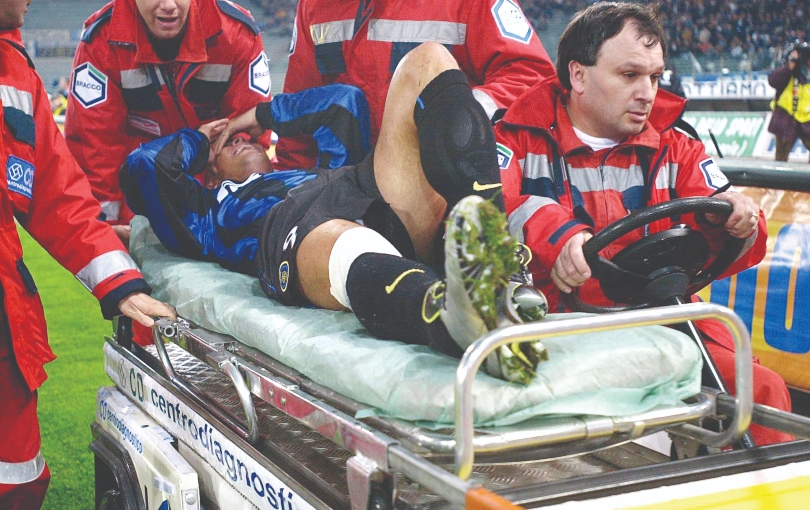
Even now, Ronaldo can’t watch any footage or look at photographs from the match. “I have to cover my eyes and look away,” he recently said. “If I see those pictures, it’s like the pain has returned.”
The Brazilian would miss all of the following season and the start of the 2001-02 campaign. There were concerns that he would suffer from depression, but instead he found a new calmness away from the clamours of Serie A. Having recently become a father to a son, Ronald, he learned “to be happy with the little positive things. My days aren’t tied to football, I can think more about myself. There’s no rush, no pressure.”
Meanwhile, Moratti brought in Robbie Keane for £13m from Coventry, another marksman who had impressed him on TV. Lippi didn’t share his enthusiasm and left under a cloud of cigarillo smoke in October 2000, replaced by Marco Tardelli. With Vieri picking rows with everyone including his own fans (he refused to celebrate scoring for most of the campaign), Inter finished 5th to a backdrop of ultra unrest and scooters tumbling down from the Curva Nord.
Away from such a toxic atmosphere, Ronaldo was recuperating by playing five-a-side with his old mates back in Brazil (“there’s this guy Borracha, he used to be great, but he’s 23 stone now,” he enthused about one team-mate) and bonding with his young son.
He returned to pre-season training in the summer of 2001 and was greeted by another new coach, the Argentine Hector Cuper. It wasn’t until November 4 that he played in a league game, picking up a slight injury after less than a quarter of an hour. “These things happen,” he shrugged afterwards.
In December he was back scoring, teaming up with a revitalised Vieri and finally showing everyone what could have been and, crucially, what still might be. A 3-0 home win in December against Verona (Vieri scoring once, Ronaldo twice) sent Inter top of the table. A 1-0 derby victory in March meant they climbed back to the summit and by the final round of games, on May 5, it was all in Inter’s hands: one point in front of Juventus, two ahead of Roma.
Away at Lazio, the Nerazzurri were 2-1 up, only to collapse and lose 4-2. Juventus took the title, Roma were 2nd and Inter 3rd. Ronaldo left the Stadio Olimpico pitch in floods of tears. “Disappointment seems to be my partner in life,” he told journalists.
Maybe a fresh start really was the only answer. Rumours of a Real Madrid bid had been appearing in the Italian press for the past year. In August 2002 they were confirmed, amid stories of a falling out with Cuper and uncharacteristically bitter snipes in the press.
Back in Spain, Ronaldo continued to bear the burden of being the first superstar footballer of our digital age (his website would often crash due to heavy traffic in those days of dial-up modems) and first who had to find a way to balance the demands of PR and press with those of playing football.
Soon a new breed would emerge, one that would learn how to operate within that tightest of spaces between their public and private lives – thrive in it even – but for a while Il Fenomeno was all on his own.
It was years before his relationship with Inter was repaired, and a post-Real stint at city rivals Milan didn’t help. Now player and club are reconciled, but memories of the Brazilian’s time wearing a black-and-blue shirt can only feel bittersweet for both; a reminder of a time when one of the world’s greatest forwards, at the peak of his considerable powers, somehow failed to help Inter conquer the Italian game.
While you’re here, why not subscribe to the mag - get your first five issues for just £5, almost £25 cheaper than buying it in the shops!
READ MORE...
Matt Barker is a freelance journalist and regular feature contributor to FourFourTwo magazine. He specialises in Serie A and Italian football, has interviewed players including Michael Owen and Gianluigi Buffon, as well as covering stories such as Silvio Berlusconi's purchase of AC Milan, and Ronaldo's injury-plagued time at Inter Milan at the turn of the century.
 Join The Club
Join The Club










